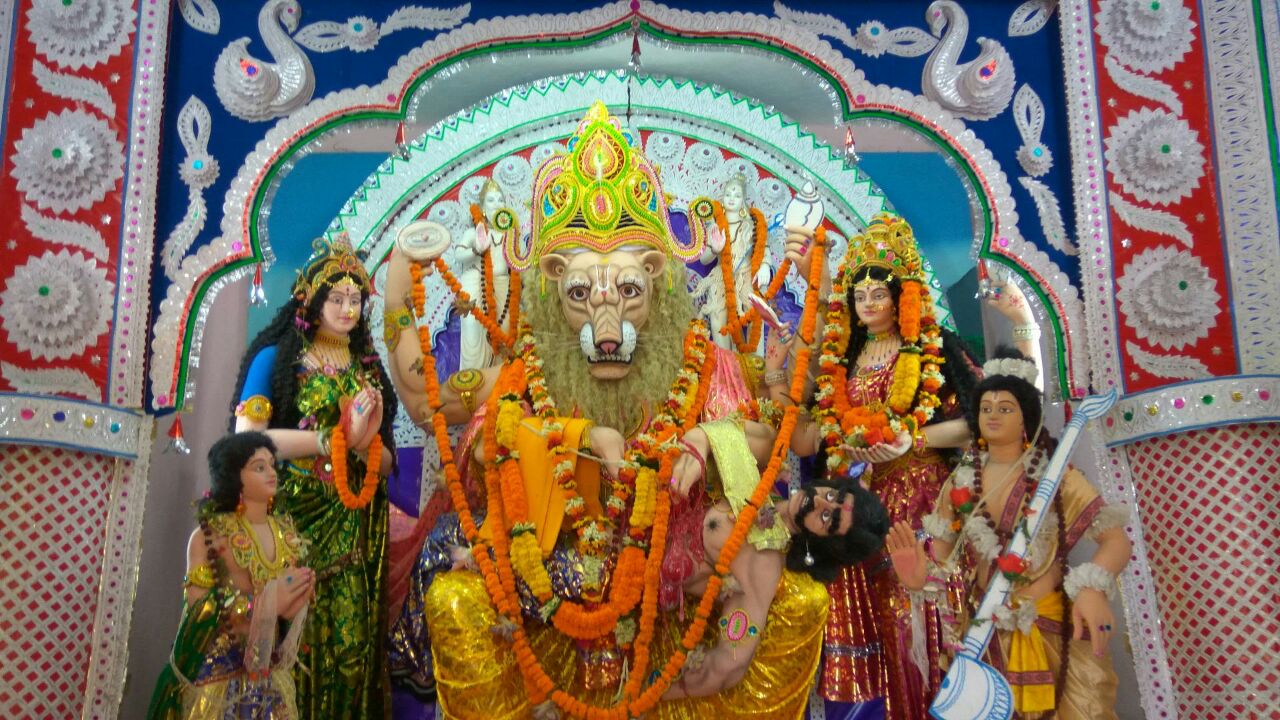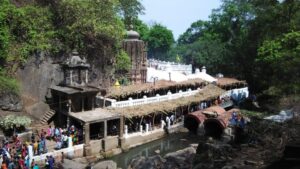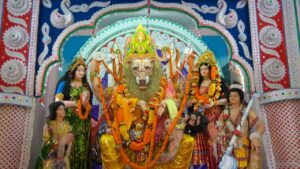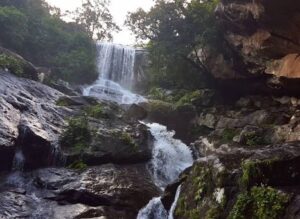Nrusinghanath Temple – Odisha:
At the base of the Gandhamardhan hills, close to Paikmal, Bargarh, there is a temple called Sri Nrusinghanatha in the Indian state of Odisha. This ancient temple’s foundation was laid by Baijal Singh Dev, the King of Patna, during the beginning of the 15th century. The structure is just 45 feet tall and is divided into two sections: the first houses the seat of Lord Nrusinghnath, while the second is reserved for Jagamohan. The antechamber has three gates, each of which is supported by four pillars.
Nrusinghanath Temple History:
A woman named Jamuna Kandhuni, who is mentioned in the book “Nrusingha Charitra” in the Odia language, wrote a Kavya in the early 1600s that praises Marjara Keshari for her efforts to put an end to torture and the tyranny of Musika Daitya. The legend claims that when Musika Daitya—the incarnate Mouse Demon—started to terrorise people severely, Vishnu Mani—as Marjara Keshari, His Feline Form—ran to devour Musika Daitya and waited for him to emerge from the tunnel. However, Musika Daitya never did. The temple has a mythical past that dates back to that time. Since then, Lord Nrusinghnath alias Marjara Keshari has been protecting it as a symbol of the demonic evil force of oppression and torment that was grounded but never dared to spread.
Architecture:
The Chinese traveller Huen Tsang claimed that this location served as a focus for the study of Buddhist scripture. Lord Nrushinghanath is a revered deity in Odisha, and on the fourteenth day of the bright fortnight in the month of Vaisakha, a large fair is organised in his honour. The temple was constructed by Baijal Dev in the beginning of the 15th century AD, according to inscriptions in Odia and Devanagari. The temple is a masterpiece of Kalinga architecture in the Deula style, which is popular in the Indian state of Odisha.
Other tourist attractions near Nrusinghanath Temple:
Other nearby attractions include Chal Dhar (400 metres from the temple), Bhim Dhar (425 metres), Sita Kunda (500 metres), Panchupandav (1.5 kilometres), Kapil Dhar (4 kilometres), Supta Dhar (7 kilometres), Satyaamb (9 kilometres), Bhim Madua (11 kilometres), and Happy Point (12 kilometres). Numerous pilgrims travel from near and far to attend an annual large fair conducted on Nrusimha-chatrurdasi day during Vaishakha shukla chaturdashi (in May). About 110 miles west of Baragarh and 164 km from Sambalpur are Nrusimhanath Temple. The closest railhead is the Khariar Road Railway Station.There is also a lovely garden that was built right next to the temple, where Lord Krishna is shown in many guises, as well as a 28-foot-tall Hanuman statue that was built in the garden’s middle.
Nrusinghanath Temple Timings:
Morning : 4.00 am – 12.00 pm
Evening: 2.00 pm – 6.00 pm
Nrusinghanath Temple Location:
Mugpal, Bargarh, Odisha – 755009
Nrusinghanath Temple nearest Tourist Places:
Kapil Dhaar Waterfall
Papanga Hill, Budharaja Mountain
Debrigarh Wildlife Sanctuary
Patharseni Temple
Buddha Bihar
Bindhyabasini Temple
Nrusinghanath Waterfall:
The renowned Nrusinghanath Temple, which is located at the northern foothills of Gandhamardan Hill, is situated adjacent to the Nrusinghanath Waterfall. The waterfall is a must-visit location in Bargarh District for individuals who enjoy natural settings and appreciate spending time near to mother nature. It is surrounded by deep forests and steep terrain. The recommended period to visit this place is from October to March.
Nrusinghanath Temple to Harishankar Temple distance – 1 hr 23 min (50.4 km) via Biju Expy/Nuapada – Padmapur Hwy/Nuapada – Padmapur – Sohela Hwy
Sambalpur to Nrusinghanath Temple balangir distance: 4 min (1.1 km) via Sambalpur – Rourkela Hwy/Veer Surendra Sai Marg
Bargarh to Nrusinghanath Temple distance: 56 min (44.4 km) via NH53
Padampur to Nrusinghanath distance: 9 hr 52 min (413.1 km) via NH55
Nrusinghanath Temple Photos:




